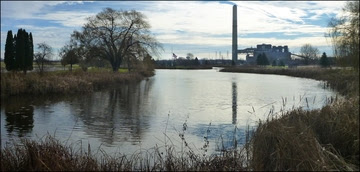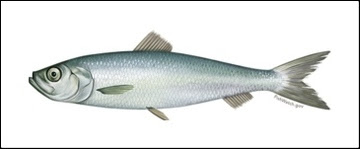HIGHLIGHTS

United States Tackles Global Fisheries ChallengesAs a global leader, the United States has both the opportunity and responsibility to advance sustainable conservation and management practices in our domestic fisheries and around the globe. Read the latest leadership message from John Henderschedt, Director of the Office of International Affairs and Seafood Inspection for NOAA Fisheries.


Large Whale Entanglements National ReportNOAA Fisheries released a National Report on Large Whale Entanglements Confirmed in the United States in 2017. The number of confirmed cases nationally, 76, was slightly above the 10-year average. NOAA Fisheries maintains regional entanglement reporting hotlines that quickly relay reports of entangled whales to trained responders.

GulfCorps: Stories of RestorationThe Nature Conservancy, NOAA's partner in the GulfCorps conservation corps program, just released an inspiring set of stories and videos on the young people involved. GulfCorps provides short-term employment for local young adults in Gulf of Mexico communities, including veterans and those from underserved communities. Corps members also get skills training and experience in jobs supporting local workforce development in the habitat restoration field.

West Coast

Central Washington Fosters Steelhead ResurgenceAfter the removal of a diversion dam on Central Washington’s Manastash Creek, threatened Mid-Columbia steelhead are re-establishing themselves in more than 20 newly accessible miles of healthy creek habitat. The removal of the dam and restoration of the creek were made possible through the focused collaboration of federal agencies and local partners.

Final Rule for Groundfish Gear RestrictionsNOAA Fisheries announced a final rule revising the restrictions on groundfish bottom and midwater trawl gear for vessels fishing in the Pacific Coast Groundfish Fishery’s Trawl Rationalization Program. These regulatory revisions are possible because the program, first implemented in 2011, has achieved a substantial reduction in discards and allowed the rebuilding of five of the seven previously overfished species.
Southeast


Final Rule for South Atlantic Golden TilefishNOAA Fisheries published a final rule revising the catch limits for golden tilefish in the South Atlantic. Informed by the most recent population assessment, the final rule reduces golden tilefish catch limits to end overfishing.

Florida Restoration Plan Webinar RescheduledThe public webinar for the Deepwater Horizon Florida Trustee Implementation Group’s Draft Restoration Plan 1 and Environmental Assessment has been rescheduled for December 13. Originally planned for October, the webinar was postponed due to Hurricane Michael. Comments on the draft will be accepted through December 28.

Texas Trustees Annual Meeting Materials OnlineThe Deepwater Horizon Texas Trustee Implementation Group held their annual public meeting in October to provide information on the planning process and updates on work in the Texas Restoration Area. The presentation and other meeting materials are now available online.
Greater Atlantic

Proposed Adjustment to 2019 Herring Specifications – Open for Public CommentBy December 31, please submit your comment on a proposed in-season adjustment to the 2019 Atlantic herring specifications that will reduce Atlantic herring landings. The 2018 Atlantic herring stock assessment concluded that the Atlantic herring catch would need to be reduced to minimize the risk of overfishing and prevent the stock from becoming overfished.

Fall Bottom Trawl Survey CompletedLast month, the Northeast Fisheries Science Center completed their 2018 Fall Bottom Trawl survey aboard NOAA Ship Henry B. Bigelow. The Center's twice-yearly bottom trawl survey of fish and invertebrates is the longest running survey of its kind in the world, and it collects data used to understand changes in marine life and their habitats over time.

Satellite Tagging Atlantic Salmon in GreenlandNOAA Fisheries biologist Tim Sheehan spent 10 days in southwest Greenland trolling for pre-adult Atlantic salmon to capture and release with pop-up satellite tags that record environmental conditions and fish behavior. The data collected through this international partnership will help scientists better understand the behavior of Atlantic salmon that spawn in Maine and migrate to Greenland.
| 
No comments:
Post a Comment